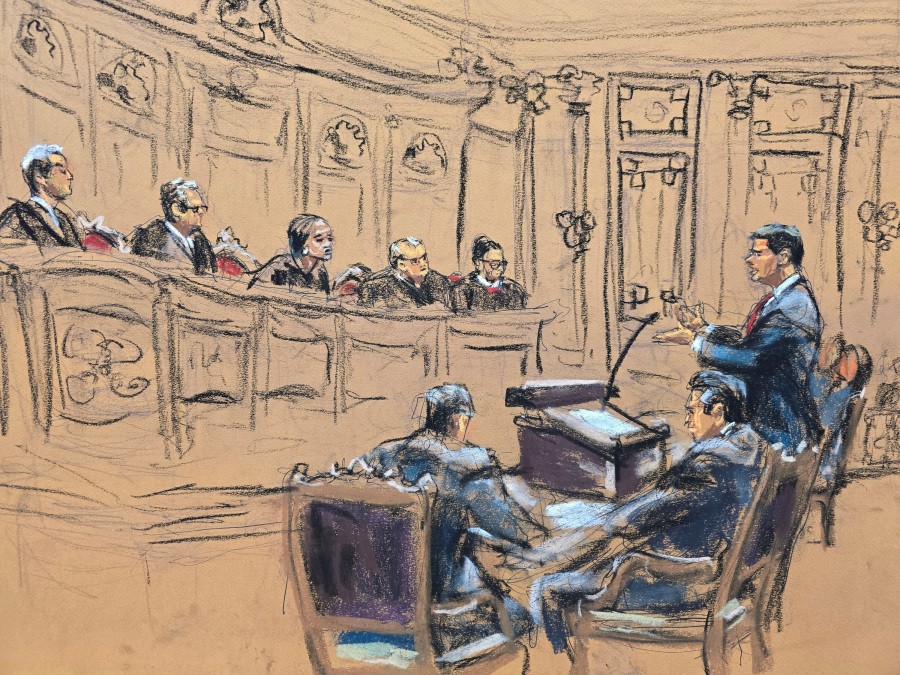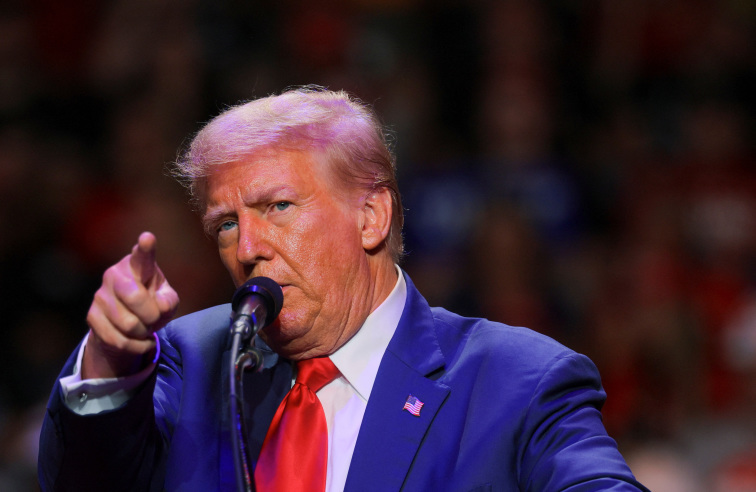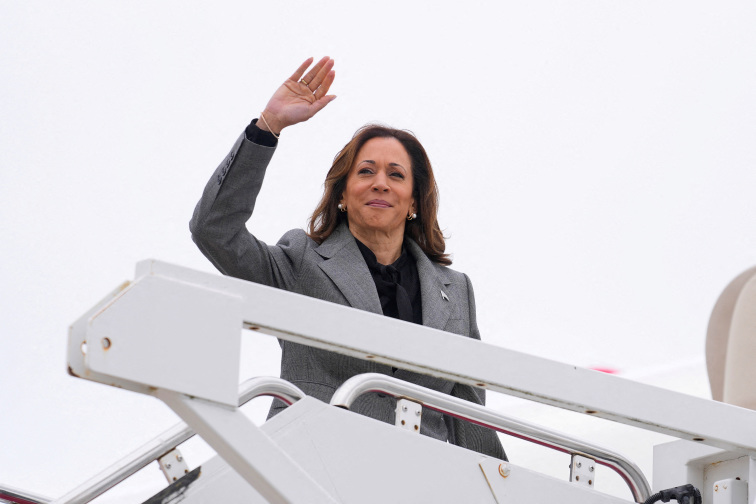Trump's lawyer John Sauer speaks in front of appeals court judges as lawyers Chris Kise and Clifford Robert sit at the defense table defense table during appeals in the civil fraud case brought by New York state against Donald Trump as the former president asked them to toss a nearly half-billion dollar judgment against him over real estate business practices that a judge declared fraudulent in New York, U.S, September 26, 2024 in this courtroom sketch. (REUTERS/Jane Rosenberg)
NEW YORK (Reuters) -Appeals court judges signaled skepticism on Thursday toward the civil fraud case brought by New York state against Donald Trump as the former president asked them to toss a nearly half-billion dollar judgment against him over real estate business practices that a trial judge declared fraudulent.
Justice Arthur Engoron in February ordered Trump, the Republican candidate in the Nov. 5 U.S. presidential election, to pay $454.2 million in penalties and interest for inflating his net worth to dupe lenders and insurers into giving him better terms. The civil case was brought by New York state Attorney General Letitia James.
Members of the five-judge panel on the Appellate Division - the mid-level state appellate court hearing arguments in Trump's appeal - appeared concerned about possible overreach by James.
Two of the judges interrupted Judith Vale, the lawyer arguing for New York, during her opening statement to ask if there were any other examples of the state suing over private business transactions between sophisticated parties under a law aimed at protecting market integrity.
"Every case that you cite involves damage to consumers, damage to the marketplace," Justice David Friedman told Vale.
"We don't have anything like that here," Friedman added, saying that nobody "lost any money."
The judges also wondered about what constraints applied to the law James cited in bringing the case - one that is typically used to go after fraudsters who target vulnerable consumers.
"How do we draw a line or at least put up guardrails? Justice Peter Moulton asked.
Vale, the state's deputy solicitor general, said the statute - known as Executive Law 63(12) - is broadly aimed at stopping fraud and illegality, and was therefore appropriate in Trump's case.
"When risk is injected into the market, that does hurt the counterparties and it does hurt the market as a whole," Vale said.
The case stemmed from Trump's leadership of his family real estate company, the Trump Organization, before he became president in 2017. Trump in April averted possible asset seizures in the case by posting a $175 million bond while he appeals.
Trump's lawyer John Sauer told the judges that trial testimony showed that any discrepancies in Trump's net worth were irrelevant to his lenders.
"What is not disputed is the testimony that if the net worth had been as low as one million (dollars), the deal would've been exactly the same," Sauer said.
Sauer added that none of Trump's lenders and business partners were harmed by the discrepancies on the financial statements, an argument Trump's lawyers have made throughout the case.
"There were no victims, no complaints," Sauer said.
During his rebuttal argument, Sauer said Vale had "struggled to articulate any clear principle" that would limit the state's enforcement power under the law.
TRUMP'S EMPIRE
Engoron's ruling poses a threat to the business empire Trump has built over decades, which includes hotels, office buildings and golf courses around the world. With interest continuing to accrue, Trump now owes $478.3 million.
The case is one of a number of legal entanglements Trump has faced since leaving the White House in 2021. He owes nearly $90 million in federal civil penalties for defaming a writer who accused him of sexual abuse, and was convicted in May on criminal charges stemming from hush money paid to a porn star.
Trump has denied all wrongdoing and has said the cases were brought to interfere with his campaign. A Reuters/Ipsos poll on Tuesday showed Vice President Kamala Harris, the Democratic candidate, leading Trump 47%-40% nationwide, though the state-by-state results of the Electoral College determine the winner.
In a brief submitted in July to the Appellate Division, Trump's lawyers said that the financial statements he submitted to banks actually understated his wealth, and there was no indication that any of the lenders suffered losses.
The lawyers also accused James, a Democrat, of targeting a political adversary.
In September 2023, before a three-month trial with no jury, Engoron found Trump liable for lying about his asset values and net worth for a decade. The judge took particular issue with Trump's claim that his Manhattan penthouse apartment was 30,000 square feet (2,787 square meters), nearly three times its real size.
The trial focused solely on penalties. In addition to the financial penalties, Engoron banned Trump from serving in a top role at any New York company, or seeking loans from banks registered in the state, for three years.
(Reporting by Jack Queen in New York; Writing by Luc Cohen; Editing by Will Dunham, Noeleen Walder and Daniel Wallis)









News magazine bootstrap themes!
I like this themes, fast loading and look profesional
Thank you Carlos!
You're welcome!
Please support me with give positive rating!
Yes Sure!